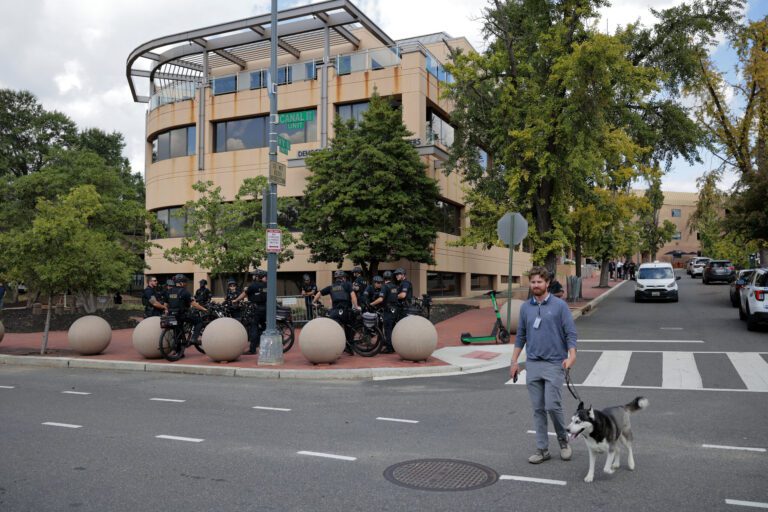Tragedy Strikes Washington: The Assassination of Charlie Kirk
On Wednesday morning, the atmosphere in Washington, D.C. was typical, filled with tourists, office workers, and Park Police on the National Mall, while lawmakers moved freely across the Capitol grounds. However, by Thursday afternoon, the shocking assassination of Charlie Kirk—a prominent conservative figure—shifted the mood dramatically.
Immediate Fallout from the Assassination
In the wake of Kirk’s tragic death, the Capitol experienced heightened tension and uncertainty:
- Public Events Canceled: Lawmakers swiftly canceled public engagements.
- Increased Security: President Trump is reportedly under enhanced security measures as he mourned at a 9/11 memorial.
- Personal Safety Measures: Some legislators, like Congresswoman Nancy Mace, announced plans to carry firearms for self-defense, highlighting personal safety concerns.
A Shift in Tone
The chilling event left Congress on edge:
- Congressman Derrick Van Orden harshly criticized reporters at the Capitol, suggesting they bore some responsibility for the assassination, despite the suspect remaining unidentified.
- In stark contrast, House Speaker Mike Johnson advocated for calmer rhetoric among lawmakers, emphasizing the need for respect in political discourse.
"I’m always about turning down the temperature," said Speaker Johnson.
Rising Threats Against Lawmakers
The assassination has underscored an alarming trend of increasing threats:
- Rising Violence: Reports indicate that threats against members of Congress surged over 50% from 2024 to 2025, with 14,000 threats documented in just eight months.
- Personal Security Measures: Alongside Mace’s announcement, other lawmakers are also taking protective measures, including seeking police escorts and enhancing security at their offices.
National Reactions
As news of the assassination spread, it coincided with a series of security threats in Washington, including:
- Bomb Threat at DNC: A bomb threat near the Democratic National Committee headquarters prompted a significant police presence, although it was later deemed non-credible.
President Trump’s Response
During his speech at the Pentagon, Trump acknowledged Kirk and pledged to posthumously award him the Medal of Freedom. In light of the assassination, the Secret Service has intensified security protocols for the president, particularly regarding his upcoming travel plans.
"Our nation is at a crossroads. We must protect our elected officials," emphasized a source close to the administration.
Historical Context
Kirk’s assassination is not an isolated incident; it follows a troubling pattern of political violence:
- Previous Assaults: Earlier this summer, a former high-ranking Minnesota politician and her spouse were attacked in their home, prompting renewed discussions on lawmakers’ security.
- Legislative Responses: Congressional efforts to enhance security measures were implemented over the summer, allowing lawmakers to use official funds for personal safety measures.
Navigating a New Normal
The atmosphere in Washington, D.C. has changed drastically post-assassination. Lawmakers from both sides of the aisle are feeling the weight of the risks associated with their duties.
- Public Office as a Target: "If you’re vocal as an elected official, your life is at risk," stated Congresswoman Mace, echoing the growing concern among her colleagues.
Conclusion
As Washington grapples with the aftermath of Charlie Kirk’s assassination, it stands as a stark reminder of the fragile nature of political discourse in America today. Lawmakers are now acutely aware that the safety of public figures is under unprecedented threat, prompting discussions on how to foster a more secure and respectful political atmosphere.
For further insights on political security measures, read more about Congressional Safety Protocols. For updates on political news, follow Political Analysis.


